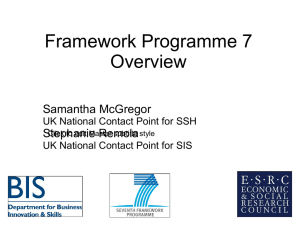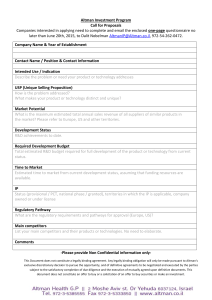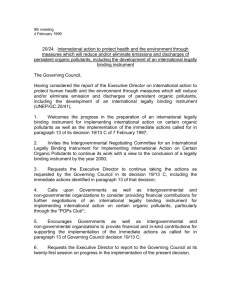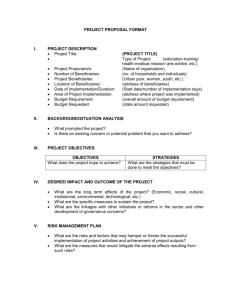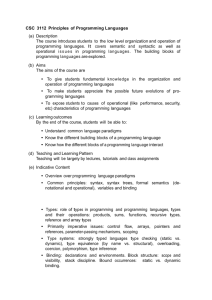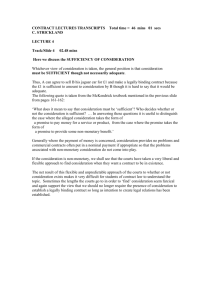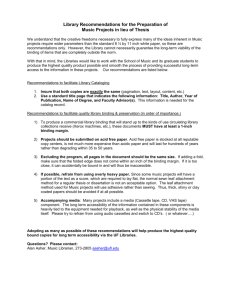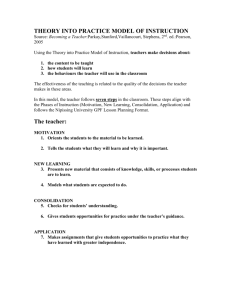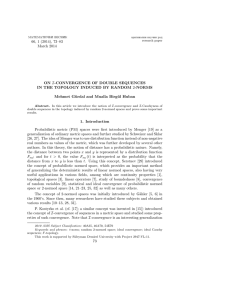Contracts and financial issues
advertisement
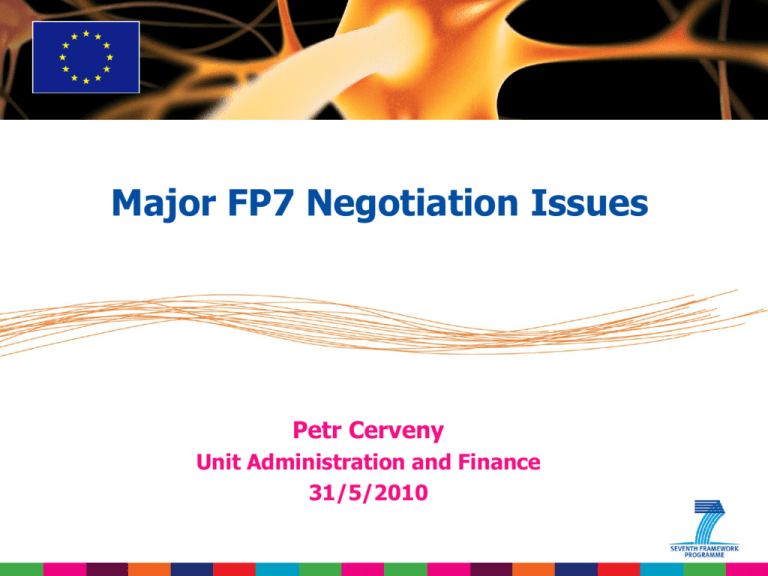
Major FP7 Negotiation Issues Petr Cerveny Unit Administration and Finance 31/5/2010 Goals of the presentation 1. To give guidance on major FP7 negotiation administrative issues 2. To receive feedback on FP7 administrative issues Overview of the presentation 1. 2. & 3. & 4. 5. & 6. 7. 8. 9. 10. 11. 12. 13. & 14. Validation of new beneficiaries (PIC) Grant Preparation Forms (GPFs) (1) & (2) & (3) Prefinancing (1) & (2) Reporting periods Starting date of the project Consultants & Subcontracting Audit certificate Financial capacity check Grant Agreement signature process Important documents–CORDIS website (1) & (2) 1. Validation of new beneficiaries (PIC) • Validation – fully validated PIC – is necessary: – for all new Beneficiaries – for Third Parties acting under special clause 10 (SC10) • Validation is to be launched by Beneficiaries and Third Parties under SC 10 themselves – by submitting legal validation documents to a special CORDIS website called the ‘Participant Portal’ (http://ec.europa.eu/research/participants/portal/ appmanager/participants/portal) • Validation is NOT required for subcontractors Not legally binding 2. Grant Preparation Forms (GPFs) (1) • GPFs are to be filled on-line via NEF tool (Guidance available on CORDIS website) • Original signed GPF Forms A2.5 needed (and A2.6 for the coordinator) • Technical notice for budgetary GPF A3.2 Form: – Two critical budgetary figures shall be without Eurocents: Total Project Cost and Total Project EC Contribution Not legally binding 3. Grant Preparation Forms (GPFs) (2) • Indirect cost method – please check it carefully – one Indirect cost method per beneficiary is fixed for all its FP7 projects – in case of a mistake, it is necessary that LEAR contacts the central validation unit via the Participant Portal for a correction request & in copy email to Project Officer • Banking account info (GPF A4 Form) for the coordinator only = Original of GPF A4 Form signed both by the coordinator and the bank, or = Original of GPF A4 Form signed by the coordinator only plus a copy of a bank statement Not legally binding 4. Grant Preparation Forms (GPFs) (3) • LEAR = Legal Entity Appointed Representative (stated on GPF A2.1 Form, one for the legal entity) – LEAR is the organisation contact point for submission changes of legal data of the organisation on GPF A2.1 & A2.2 Forms via the Participant Portal (like name, address, VAT number, public body status, SME status, indirect cost method correction etc.) • (Project) Authorised Representatives = GPF A2.3 Form – Authorised Representatives (max 2 per project) are the only persons that sign the Grant Agreement on behalf of the organisation – one organisation for different FP7 projects can have different Authorised Representatives • (Project) Contact Persons = GPF A2.4 Form – Administrative and Scientific Contacts for operational project communication between the Commission and the organisation Not legally binding 5. Prefinancing (1) • Purpose of the prefinancing: to have a positive cash-flow for beneficiaries during (most of) the project • Only one prefinancing for the project • Subject to negotiation – Initial heavy investment = higher prefinancing – Lower starting expenditure = lower prefinancing – Indicative rule: – projects with 1–2 reporting periods: 60–80 % – projects with 3 reporting periods: 53,3 % – projects with 4 reporting periods: 40 % Not legally binding 6. Prefinancing (2) • Paid to the coordinateur usually within 14 days after the Commision signs the Grant Agreement • Prefinancing amount paid to the consortium = Total prefinancing amount – 5 % of total EC contribution (for the Guarantee Fund) • 5 % that is being transferred automatically by the Commission to the Guarantee Fund is paid back to the consortium together with the final payment Not legally binding 7. Reporting periods • 18 months in general with residual periods between 6–17 months – room for more balanced periods e.g. 15+15 months • For very large projects with EC contribution > 10 mil. EUR reporting periods of 12 months Not legally binding 8. Starting date of the project 3 possibilities: A) The first day of the month following the Commission signature of the Grant Agreement B) A fixed starting day – an official letter is needed from the coordinator with proper justification C) The starting date can be notified by the coordinateur after the Commission signs the Grant Agreement Not legally binding 9. Consultants & Subcontracting • Consultants can be either a) ‘in house’ – similar status like employees b) ‘subcontractors’ – in all other cases • Subcontracting normally possible for non-core tasks only – every subcontracting must be detailed and justified in the Annex I – every subcontracting must be awarded to the bid offering the best value for money under conditions of transparency and equal treatment Not legally binding 10. Audit certificate • Audit certificate = Certificate on the financial statements • Only applicable if beneficiary’s cumulative cost claim for EC contribution reaches 375.000 EUR • If beneficiary’s cumulative cost claim for EC contribution does not reach the threshold 375.000 EUR, no certificate is needed Not legally binding 11. Financial capacity check • This check is done according to Commission Decision C(2007)/2466 (available on CORDIS): a) for all private coordinators (regardless of their EC contribution) b) for all private beneficiaries with EC contribution more than 500.000 EUR • All concerned beneficiaries & coordinateurs receive a special email with all instructions Not legally binding 12. Grant Agreement signature process • First the coordinateur signs the Grant Agreement • Then the Commission signs the Grant Agreement • Finally, all beneficiaries sign ‘Form A’ (one page, ‘accession’ to the Grant Agreement) • The prefinancing can only be distributed to the beneficiaries that signed ‘Form A’ • Proof of signing the Consortium Agreement is needed before the Grant Agreement signature Not legally binding 13. Important documents–CORDIS website (1) (http://cordis.europa.eu/fp7/find-doc_en.html) • Structure of Annex I to the GA (version of Jan 2010) • NEF User’s Guide (2nd version of Dec 2008) • Negotiation Guidance Notes (2nd version of Jan 2009) 14. Important documents–CORDIS website (2) (http://cordis.europa.eu/fp7/find-doc_en.html) • Guide to Financial Issues (2nd version of April 2009) • Annex II of the Grant Agreement (5th ver. of Dec 2009) • Amendments Guide for FP7 (version of Feb 2010) Thank you for your attention! Questions & Answers
